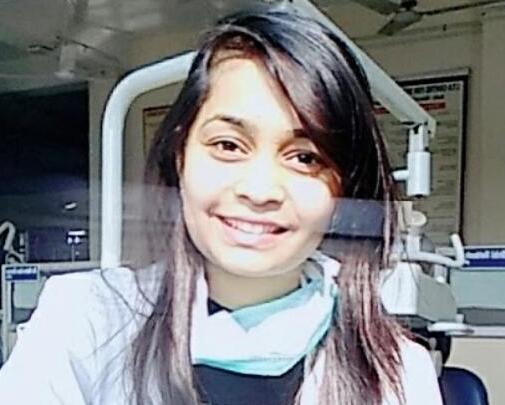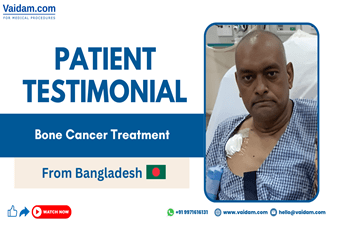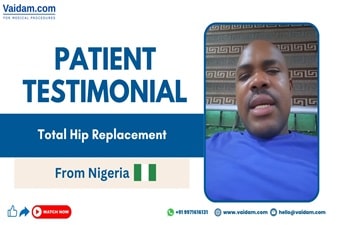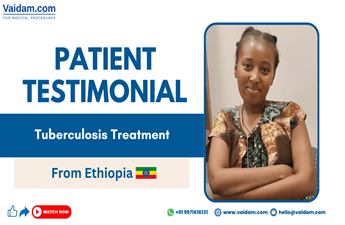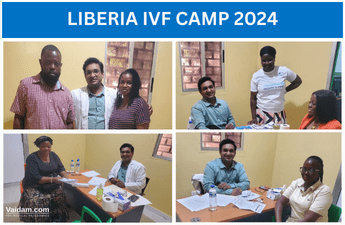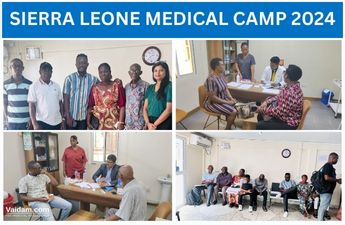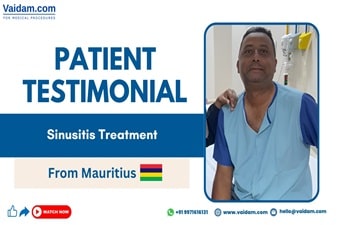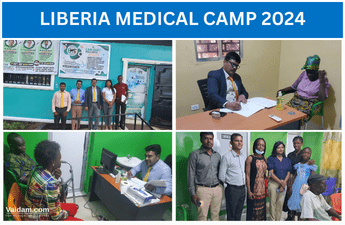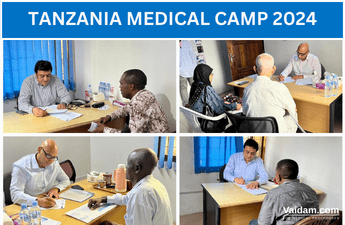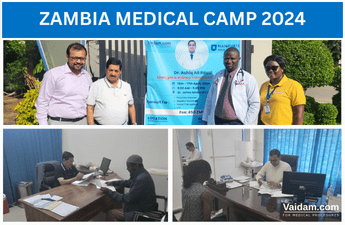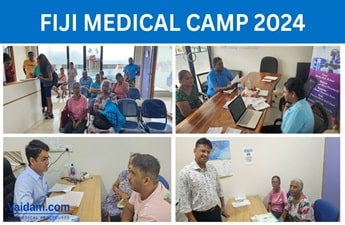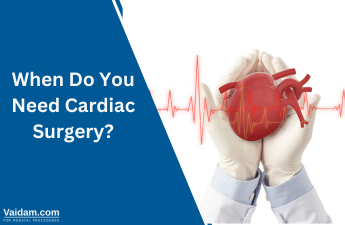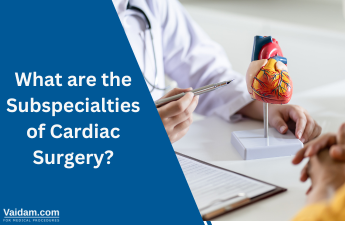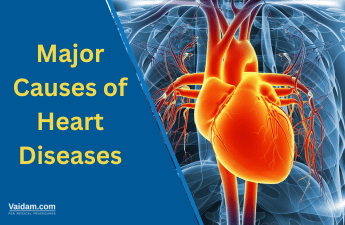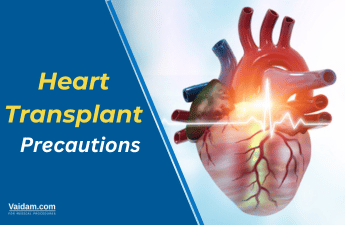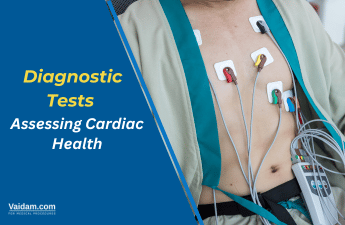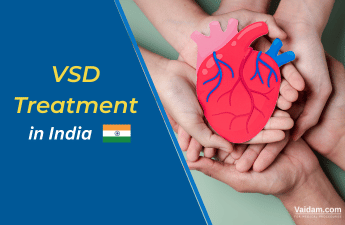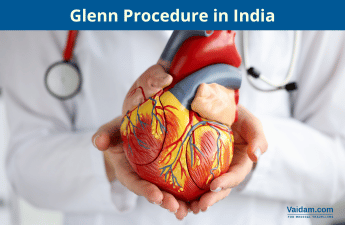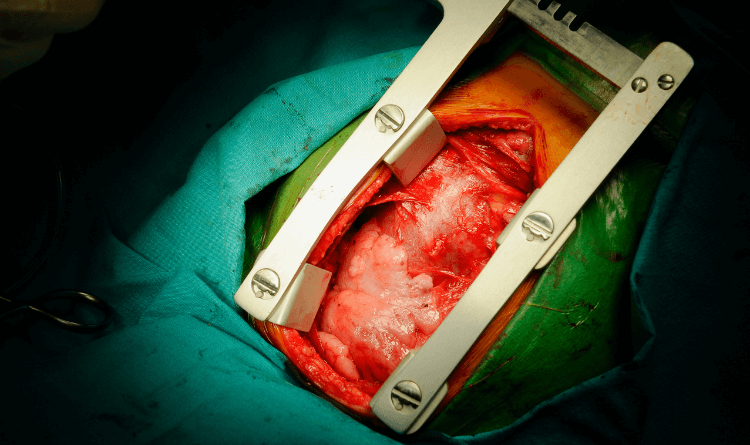
Open-Heart surgery is when the chest is opened by making an incision to get visual access and perform the surgery on the heart's muscles, valves, or arteries. Open heart surgeries are the conventional form of surgery, unlike the latest form of minimally invasive surgery, which involves smaller incisions and faster recovery.
According to the National Heart, Lung, and Blood Institute, coronary artery bypass grafting is among the most common types of heart surgery in adults.
Get in Touch with Medical Experts
Why is Open-Heart Surgery Needed?
Open heart surgeries are usually recommended in the following cases:
-
To perform coronary artery bypass grafting.
-
Repairing or replacing heart valves allows blood to travel through the heart.
-
To repair damaged or abnormal heart areas.
-
Implantation of medical devices which help the heart to beat properly.
-
Replacement of a damaged heart with a donated heart.
How is Open-Heart Surgery Performed?
Generally, an open-heart surgery takes 3-6 hours. It includes these steps:
-
General anesthesia is administered to ensure that the patient will be pain-free during the procedure
-
8 to 10-inch cut is made in the patient's chest
-
After that, the patient is connected to the heart-lung bypass machine once the heart is visible
-
The surgeon will use a healthy vein or artery to create a new path around the blocked artery
-
After that, they close the breastbone with the wire and stitch the original cut
What is the Age Limit for Heart Bypass Surgery?
Although there is no such age limit for heart bypass surgery, if you are above 65, you can be at risk of further consequences.
Is Anesthesia Safe for the Heart?
All anesthetic agents have intrinsic myocardial depressant properties. Anesthesia is not completely safe for the heart and can show some side effects. However, a moderate amount of anesthesia is safe to use so the patient will be asleep and pain-free.
What Does Anesthesia Do to Your Body?
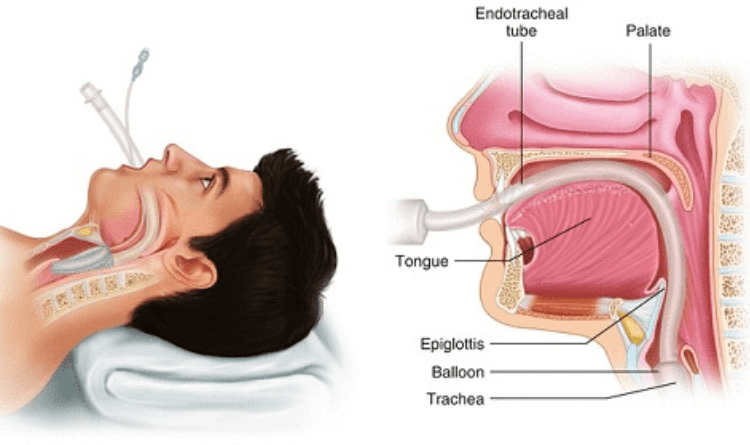
General anesthesia is widely used for major operations. The major role of anesthesia is to cause loss of consciousness or put a person to sleep. It is helpful to perform operations as it blocks pain, gives numbness, and makes you unable to move.
What are the 3 main Types of Anesthesia?
The most common medications used for anesthetic purposes in open-heart surgeries are listed below:
Midazolam
This is a short-acting benzodiazepine (sedative) that is administered to children either orally, intranasally, or intravenously. The effect is mostly similar to diazepam. Midazolam can cause sedation, decreased anxiety, and amnesia. However, the method of administration affects the drug to show its effects. For example, if administered intranasally, the effects may be seen within 2 to 3 minutes; however, if given orally, it takes 15-20 minutes.
Even at rest, children with lower oxygen saturation levels, possibly due to congenital heart defects, benefit from sedation before inducing anesthesia. Children below 6 months are not eligible for this as they do get any benefit from this medication.
In some cases, the children may also experience certain unexpected responses, such as excessive talking, laughing, or anxiety. It is vital to consult the doctor to know if the medication should be given to the child.
Atropine
Atropine before anesthesia is given to infants under 6 months or someone with Down syndrome. Dry mouth and increased heart rate are some of the side effects. These effects are proven useful before administering anesthesia because they help reduce airway secretions and prevent bradycardia, i.e., having a slower heart rate. Atropine can be used by intramuscular injection or even intravenously. It is tolerated well by most infants. However, it can cause red flushes in some cases.
Morphine
Morphine belongs to the category of narcotics known for causing sedation and anesthesia. It may be used as a premedication for congenital heart defects such as Tetralogy of Fallot or other cyanotic illnesses. Some side effects include itching on the nose and the face, and small hive-like hives blotch on the skin near the site where the drug was injected. Morphine also slows down the breathing process.
How Long Does Anesthesia Stay in Your System after Open-Heart Surgery?
General anesthesia is used during open-heart surgery. Mostly, general anesthesia is removed from the body within 24 hours. Numerous things are linked when you wake up after the surgery, such as additional medicines given to the patients during or after the surgery, which keep you unconscious for a longer time.
How Do They Wake You Up From Anesthesia?
The process of waking up from the anesthesia after the procedure is known as emergence. During emergence, the doctor will slightly reduce the dose of anesthesia in the body, which allows the patient to regain consciousness.
The patient may feel a little confused when they first awaken and may experience side effects such as sleepiness, nausea, etc.
What is The Cost of An Anesthesia Injection?
Anesthesia injections are safe, and in India, they can cost you around INR 2500 to INR 60,000, depending on the procedure opted for.
What are the risks of anesthesia?
Even though the chances of risks and complications related to anesthesia are reducing each day due to advanced technology, the following problems can be faced:
-
Stroke
-
Excessive bleeding
-
Hoarseness of voice
-
Numbness of hands and feet
-
Infection or swelling at the sites where needles were injected.
Some other side effects may include,
-
Temporary confusion and memory loss
-
Dizziness
-
Urinary incontinence
-
Feeling cold
-
Sore throat
-
Nausea or vomiting
-
Bruising and soreness due to an IV drip.
Instructions for the surgery
The following instructions are given by the best cardiac surgeons in India, must be followed by the patients for the surgery:
-
Eating light meals the evening before the surgery
-
Taking all the medications unless advised otherwise
-
Patients taking blood-thinning medications need to follow special instructions given by the doctor.
-
Patients with diabetes need to follow special instructions on insulin management.
-
During the night before surgery, avoid eating or drinking anything.
-
Avoid chewing gums, candies, and cigarettes in the morning before the surgery.
There are numerous best heart surgery hospitals in India that are internationally accredited and provide all the amenities with the latest technologies. Patients worldwide travel to India for world-class medical treatments at an affordable price.
Is Open-Heart Surgery a Long Recovery?
Open-heart surgeries do not require a long recovery. The hospital stay must be between four to five days after the surgery. Your chest muscles will take 6 to 8 weeks to heal. After that, you can regain your daily routine.
Best Doctors for Open-Heart Surgery in India
The best doctors for Open-heart surgery in India:
-
Dr. T.S. Kler: He is a well-known Interventional Cardiologist having 35 years of experience. He is the first doctor in India to implant an Implantable Cardioverter Defibrillator (ICD) in April 1995 in India.
-
Dr. Nikhil Kumar: He is one of the renowned Interventional Cardiologists practicing for more than 26 years.
-
Dr. K.K. Saxena: He is a leading Interventional Cardiologist with 36 years of experience. He had independently performed numerous cardiac catheterization procedures for pediatric and adult patients.
-
Dr. Robert Mao: He is a reputed Interventional Cardiologist with 25 years of experience. His areas of expertise are open heart surgery, aortic aneurysm surgery, mitral/heart valve replacement, etc.
Conclusion
Open-heart surgery is helpful but doesn't prevent the artery from blocking again. That's why it is vital to improve your heart health by maintaining a healthy diet, quitting smoking, exercising daily, controlling high blood pressure, and avoiding foods high in salt, fat, and sugar.


